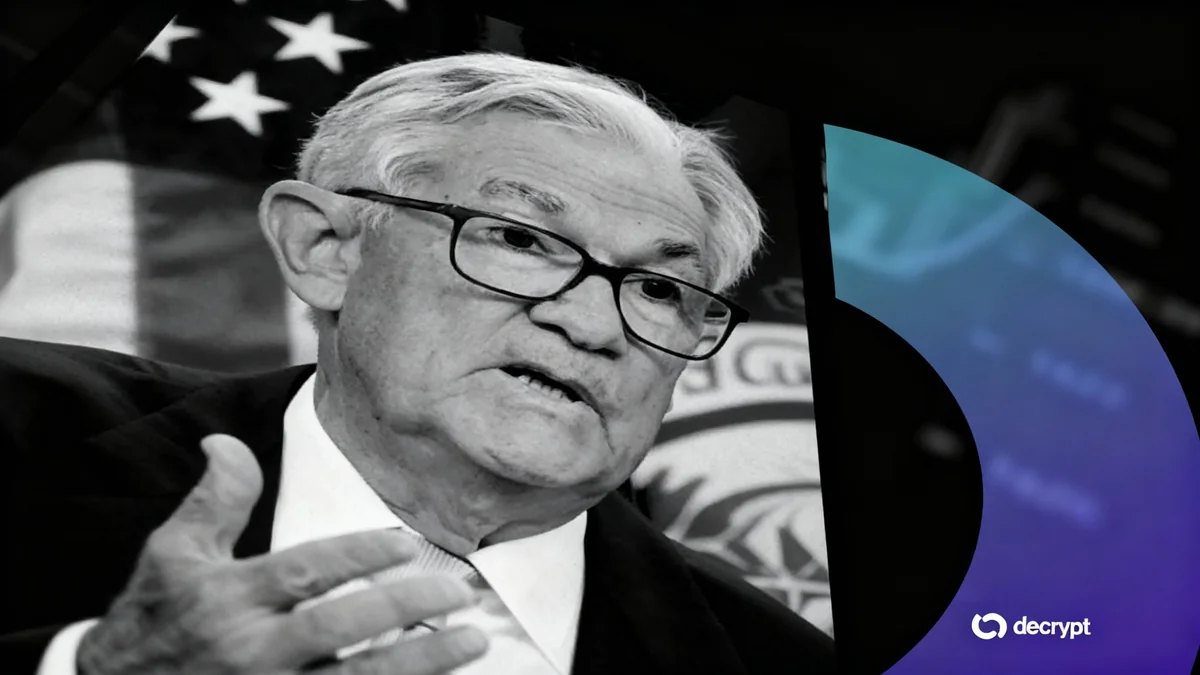Cryptocurrency prediction market Polymarket is preparing to re-enter the U.S. market, potentially within days, after a nearly four-year absence. The company is leveraging a recent acquisition of a licensed exchange to navigate the complex regulatory environment, a move that coincides with significant leadership changes and internal investigations at top U.S. financial agencies.
Key Takeaways
- Polymarket is set to resume operations for U.S. users after acquiring a CFTC-licensed exchange for $112 million.
- The relaunch comes as the White House withdraws Brian Quintenz's nomination for CFTC Chair, creating uncertainty in agency leadership.
- Separately, the SEC is under congressional investigation for the permanent deletion of nearly a year's worth of text messages from former Chair Gary Gensler.
- These events highlight the ongoing friction and scrutiny surrounding cryptocurrency regulation in the United States.
Polymarket's Strategic Return to the US Market
Polymarket, a platform that allows users to bet on the outcomes of real-world events using cryptocurrency, is poised to reopen its services to customers in the United States. According to regulatory filings, the relaunch could happen imminently. This development marks a significant turnaround for the company, which was effectively barred from the U.S. following actions by the Commodity Futures Trading Commission (CFTC) nearly four years ago.
The company's strategy hinges on its acquisition of QCX LLC in July. Polymarket purchased the CFTC-licensed exchange for $112 million and has since rebranded it as Polymarket US. This ownership structure provides the legal authority to self-certify its own event contracts, a crucial step for operating legally within the U.S. regulatory framework.
What is a Prediction Market?
Prediction markets are platforms where individuals can trade contracts based on the outcome of future events, such as elections, economic indicators, or sports results. The market prices of these contracts are seen as a form of collective prediction. Polymarket operates on the Polygon blockchain network, utilizing cryptocurrency for its transactions.
By acquiring a licensed entity, Polymarket is attempting a regulated entry into a market it was previously forced to exit. The move is being closely watched by the digital asset industry as a potential blueprint for other crypto-native firms seeking to operate under the purview of U.S. regulators.
Shake-Up at the CFTC Adds to Uncertainty
As Polymarket prepares for its U.S. debut, the agency that oversees its sector is experiencing leadership instability. The White House has withdrawn the nomination of Brian Quintenz to chair the Commodity Futures Trading Commission. The decision was reported by Politico, which cited two sources familiar with the matter.
The withdrawal occurred less than eight months after President Donald Trump had nominated Quintenz, a former CFTC commissioner, to lead the agency. Following his tenure at the CFTC, Quintenz joined the prominent venture capital firm Andreessen Horowitz, a major investor in the cryptocurrency and Web3 space.
The CFTC is a key U.S. regulator responsible for overseeing the derivatives markets, which include futures, swaps, and certain options. Its role has become increasingly important for the digital asset industry as many cryptocurrencies and related products fall under its jurisdiction.
Reports suggest the nomination was pulled following a clash with the Winklevoss twins, founders of the Gemini crypto exchange. An official stated that a new nominee would be announced in the near future. This change at the top of the CFTC introduces a new layer of uncertainty for companies like Polymarket that are directly affected by the commission's policies and enforcement priorities.
SEC Faces Congressional Investigation Over Lost Data
While the CFTC deals with leadership changes, another primary financial regulator, the Securities and Exchange Commission (SEC), is facing its own internal crisis. House Republicans have launched an oversight investigation after it was revealed that nearly a full year of text messages from former SEC Chair Gary Gensler had been permanently deleted.
The lost communications cover the period from October 2022 to September 2023, a time of intense regulatory activity and enforcement actions against the cryptocurrency industry. The SEC has attributed the data loss to unspecified "agency errors."
"The loss of these records spans a critical period of regulatory activity and public interest," stated a letter from congressional investigators.
Four Republican committee chairs, led by House Financial Services Committee Chairman French Hill, have formally notified current SEC Chair Paul Atkins of the investigation. The inquiry aims to understand the circumstances of the data loss and what they describe as significant "regulatory lapses" at the agency. The missing records could be critical to understanding the SEC's decision-making process during a pivotal time for financial markets and digital asset policy.
A Complex Regulatory Landscape
The concurrent events at Polymarket, the CFTC, and the SEC paint a picture of a U.S. regulatory environment in flux. Polymarket's calculated re-entry strategy highlights a path for crypto firms to seek compliance, yet the instability and internal issues at the very agencies they must answer to create a challenging and unpredictable landscape.
For investors and companies in the digital asset space, these developments underscore several key points:
- Regulatory clarity remains elusive: Leadership changes and internal agency problems can delay or alter the course of rulemaking.
- Compliance is complex but possible: Polymarket's acquisition of a licensed firm shows that pathways to legal operation exist, though they can be costly.
- Scrutiny is high: Both agencies and the companies they regulate are under intense observation from Congress and the public, especially concerning transparency and accountability.
The coming weeks will be critical, as Polymarket's potential relaunch will test the current regulatory waters just as the CFTC awaits a new leader and the SEC addresses a congressional probe into its record-keeping practices. The outcomes will likely have lasting implications for the future of cryptocurrency and prediction markets in the United States.





